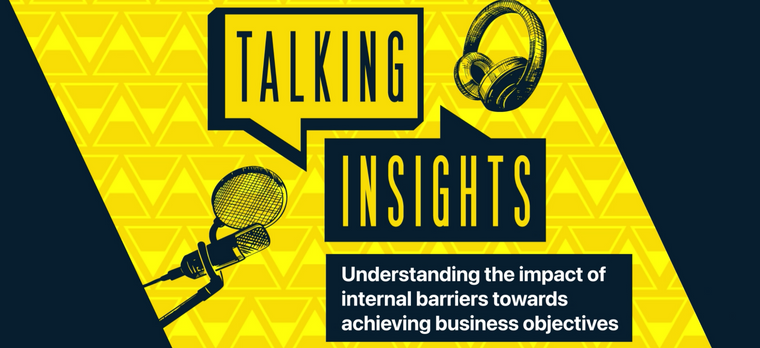Innovating with purpose: What market research can learn from media and finance
Market research is evolving. Researchers must deliver faster, efficient insights while ensuring data integrity, learning from challenges faced by other industries.

Market research is at an inflection point. As consumer behavior shifts and technology evolves, researchers face increasing pressure to deliver insights faster, more efficiently, and at scale, all while maintaining data integrity. These tensions are not unique to our field. Other legacy industries have faced similar moments of reinvention, offering valuable lessons for how to modernize without losing credibility.
The media and finance sectors, in particular, have had to reimagine their business models, invest in digital platforms, and manage significant transformation. While their paths have been far from linear, they offer important insights for our own evolution.
Media’s leap to streaming
The media and entertainment industry has been reshaped by the rise of streaming. Disruptors like Netflix, Amazon, and Apple changed how audiences consume content and how companies monetize it. Many legacy players struggled to keep up.
Disney, however, made a bold and costly pivot with Disney+. The company invested billions to launch the platform and compete in the streaming space. That investment came with challenges: tighter margins, leadership turnover, and the ongoing task of maintaining legacy businesses while building a digital future. Yet Disney’s resilience and willingness to experiment helped it stay relevant.
For researchers, this is a useful parallel. Reinvention takes clarity, capital, and long-term thinking. Like Disney, insights firms must be willing to innovate without abandoning the foundational practices that provide value, such as validated methodologies, strong sampling protocols, and analytical rigor.
Finance redefines itself
The finance industry has experienced its own digital disruption. Goldman Sachs, historically known for investment banking, ventured into consumer finance with the launch of Marcus and a partnership with Apple to create the Apple Card. These moves signaled a desire to remain competitive in an increasingly fintech-driven landscape.
However, not every effort succeeded. Marcus posted significant losses before being refocused on high-net-worth clients, and the Apple Card faced regulatory scrutiny. Goldman’s experience highlights how innovation in regulated industries brings both opportunity and risk. Trust, transparency, and operational discipline remain essential.
In market research, where clients depend on reliable data to make critical business decisions, the message is clear: digital transformation must be built on a foundation of solid methodologies and a strong understanding of what makes our insights meaningful.
The research industry’s time to evolve
Our industry is feeling many of the same pressures that finance and media have experienced in the recent past, and continue to grapple with to this day. Data quality issues, rising fraud, increasing client expectations, and the introduction of AI tools are forcing a reassessment of long-standing approaches. The need to modernize is real, but we cannot afford to sacrifice credibility in the process.
Embracing innovation, whether that means mobile-first tools, conversational research platforms, real-time feedback, or synthetic respondents, requires discipline and care. These technologies can help, but only when they are implemented in ways that enhance, rather than erode, our core strengths.
Three guiding principles for transformation
The experiences of Disney and Goldman Sachs offer three essential principles that can help guide the market research industry through meaningful and sustainable change:
Innovate, but validate
Innovation must be grounded in proven practices. Whether leveraging AI to speed up coding or adopting new data sources, tools must be validated to ensure they support quality and reliability. If the output cannot be trusted, it cannot be used to guide business decisions.Protect and evolve the core
Foundational strengths, such as representative sampling, trusted methodologies, and strong respondent relationships, must remain intact. New technologies should enhance these strengths. First-party data, behavioral analytics, and mobile-first methods are not replacements; they are tools that, when used wisely, help evolve the work we already do well.Scale with purpose
Growth must be strategic. Both Disney+ and Marcus showed that scaling quickly without clear alignment to business value can lead to setbacks. In market research, expansion efforts should be tied to client needs, operational capacity, and quality standards. Faster is only better if the output remains valid.
Transformation is not a one-time shift
Real change takes time. It requires resilience, thoughtful experimentation, and a commitment to protecting what matters most. Innovation is not just about adopting the newest tools or chasing speed. It is about building a future where insights are not only more accessible, but more accurate, trustworthy, and impactful.
By taking cues from industries that have navigated similar change, market research professionals can approach transformation with a clear sense of purpose. The future will reward those who innovate with intention, stay grounded in quality, and evolve with both confidence and care.
Bob Fawson
Founder and CEO at Data Quality Co-OpBob Fawson is Founder and CEO of Data Quality Co-Op (www.dataqualityco-op.com), the industry’s first independent first-party data quality clearinghouse. He’s committed to promoting transparency and data quality for consumer insights. An experienced executive, strategic advisor and consumer insights expert, Bob has contributed to the evolution and improvement of consumer data through a number of executive Strategy, Operational and Product roles at Numerator, Dynata, SSI and Opinionology. As Vice Board Chairman at Samplecon, and a strategic advisor to innovative market research companies, Bob enjoys contributing to the next wave of insights innovation. Bob lives in Salt Lake City with his family, and is an avid mountain biker and skier.


